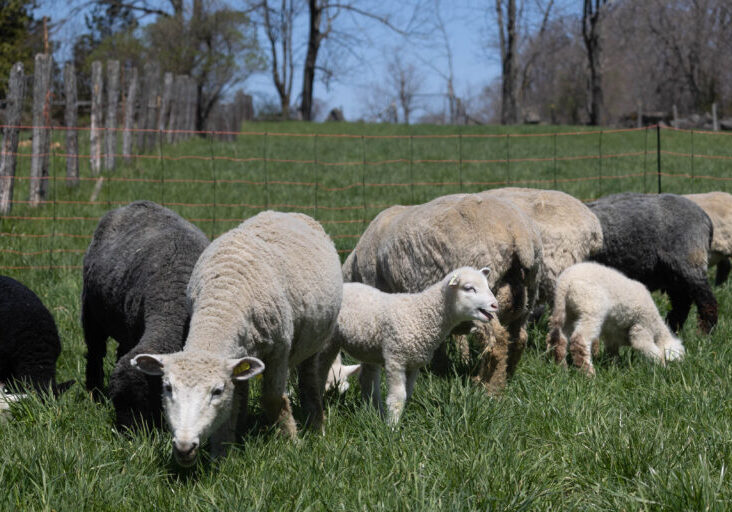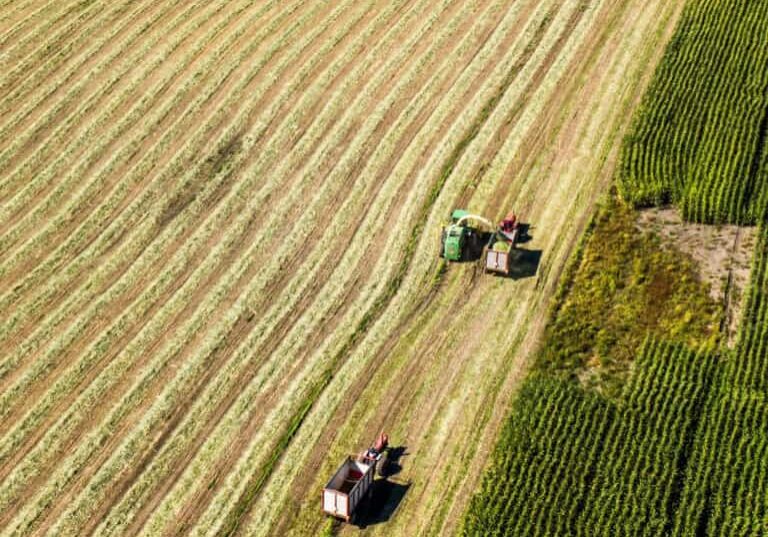This is our last, best chance for effective climate action in agriculture

National Farmers Union – Ontario Newsletter
The Rural Voice | August 2022
Provinces are currently negotiating with the Federal government to finalize the most important policy and financial instrument in Canadian Agriculture.
Until very recently, Canadian governments didn’t view the agriculture sector as an important player in the fight against climate change. Government policy statements made only passing reference to climate. The term “climate change” didn’t even appear in the federal minister’s mandate letter until late 2020. That has all changed, thanks in large part to the efforts of Farmers for Climate Solutions (FCS), a national coalition of farm groups that includes 24 member organizations representing over 20,000 Canadian farmers and ranchers. Ontario Coalition members include: National Farmers Union – Ontario, Sheep Farmers of Ontario, Ecological Farmers Association of Ontario, and the Organic Council of Ontario. Lobbying by the group has helped bring the issue of climate and agriculture to the forefront of the national debate, and has helped secure over a billion dollars in new federal spending commitments to help incentivise farmers to reduce on- farm emissions.
Climate change is quickly becoming the greatest threat to our industry – just witness the heat dome, Prairie drought, intense flooding and other devastating weather events of the recent past. Canadian farmers have a vested interest in tackling climate change head-on or risk increasingly more severe and frequent weather events strain our businesses to the breaking point.
Our sector, however, still lacks sufficient support from governments to help farmers transition to low- carbon practices. FCS research has shown that governments in the U.S. spend 13 times more than Canada on environmental programs in agriculture on a per-acre basis. The European Union spends 73 times more. The result is that agriculture is the only sector of the Canadian economy that is not projected to significantly reduce emissions in the next decade. Government projections see total agricultural emissions declining by only one per cent by 2030.
We know that agriculture offers many cost-effective opportunities to reduce emissions. Canadian farmers have been experimenting and innovating, developing practices such as reduced tillage, cover cropping and rotational grazing, to name a few, that can slash GHG emissions and sequester tonnes of atmospheric carbon in our soils. Currently, there are tens of thousands of farmers across the country who are passionate about farming in a way that benefits our climate and environment. We are ready to act. But we can’t do it alone.
Agricultural policy in Canada is an area of shared jurisdiction between federal, provincial and territorial (FPT) governments. The most important policy instrument is the Agricultural Policy Framework (APF), negotiated every five years by the FPT governments, which traditionally includes about $3 billion in public spending. The next APF is being negotiated right now, and will run from 2023 to 2028. This next agreement must have climate action at its very centre if we are to have any hope of bringing down emissions and securing a stable future for our sector.
Late last year, Farmers for Climate Solutions assembled an expert task force to examine opportunities for climate change mitigation and adaptation in the Agricultural Policy Framework. FCS brought together top researchers, economists and policy experts and paired them with farmers, who have on-the-ground experience. These farmers and researchers worked together to identify practical, proven and cost-effective practices that can immediately reduce GHG emissions, increase soil carbon sequestration and make Canadian farms more resilient in the face of climate change.
The result of this work is a comprehensive roadmap to rapidly drive down emissions and increase adaptation on Canadian farms. The task force identified 19 beneficial management practices (BMPs) that meet the criteria laid out by farmers: proven, practical and affordable. The BMPs recommended in the report certainly aren’t rocket science – all of them are already in use on many Canadian farms, some for decades. The government needs to show some leadership and support for farmers and help to spread these practices as widely as possible.
In total, the FCS task force recommendations would reduce emissions by 14 per cent over the five year life of the next policy framework, and increase sequestration in agricultural soils by over six million tonnes of CO2 equivalent every year.
The last time the FPT agriculture ministers met, in October last year, they issued a lofty declaration – The Guelph Statement – that ranked climate change mitigation and adaptation as their number one priority. Their meeting next month will be a test of their true resolve. Canadian farmers have developed a science-based roadmap to a more sustainable future. Will our political leaders follow it?
For more information visit: https://farmersforclimatesolutions.ca/
– Stuart Oke is a farmer and an Ontario representative for Farmers for Climate Solutions.
Click here to view the PDF version.
A subscription to The Rural Voice is one of the benefits of being an NFU-O member








